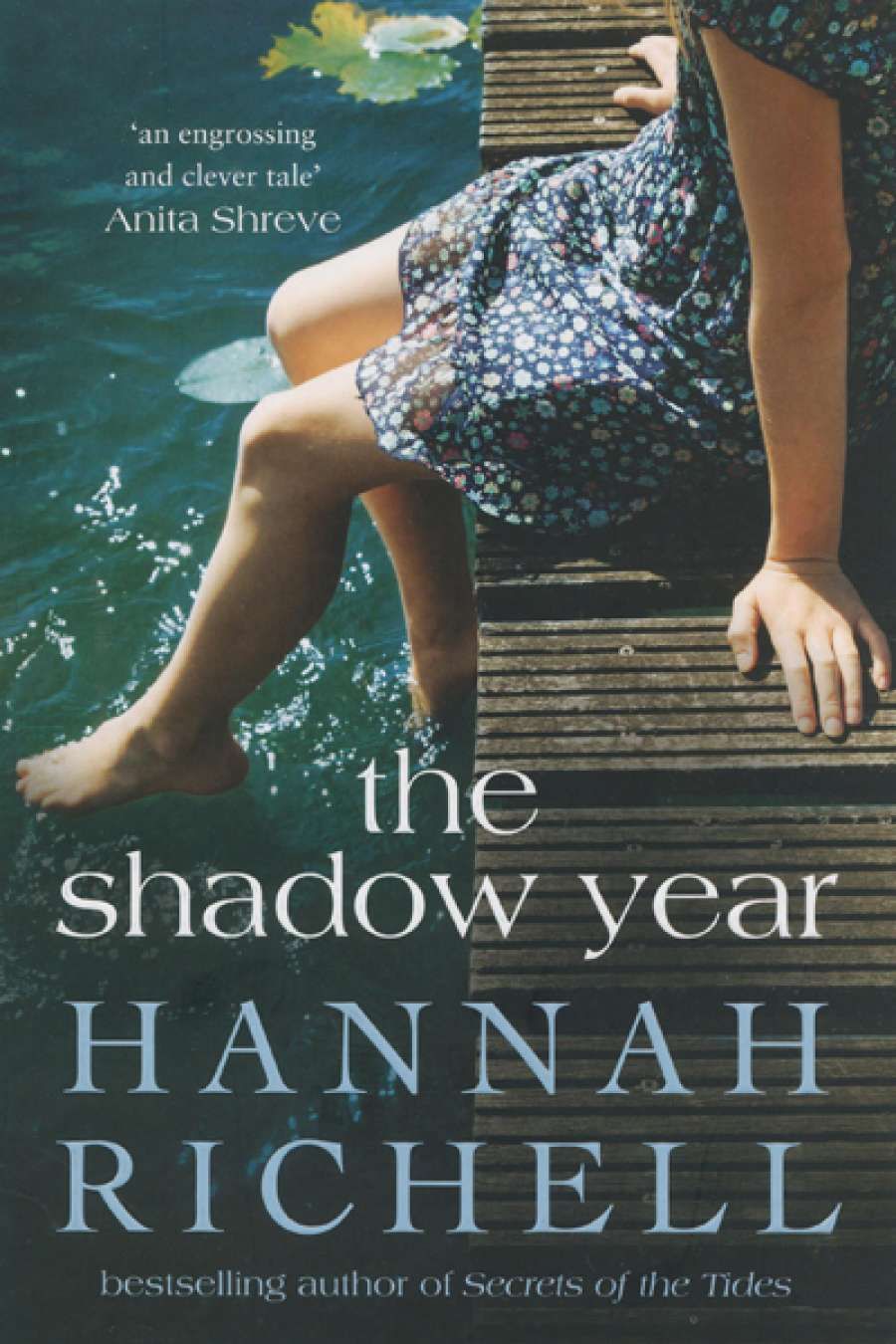
- Free Article: No
- Contents Category: Fiction
- Custom Article Title: Milly Main reviews 'The Shadow Year'
- Review Article: Yes
- Online Only: No
- Custom Highlight Text:
Shadows, shallows, tides, secrets, aching hearts, and tragedy. ‘The love and the grief and the joy and the pain and all the emotion’ – oh the emotion – in Hannah Richell’s new novel, centred around a secluded lake, can leave one feeling thoroughly water-logged. Richell’s close follow-up to Secrets of the Tides (2012) uses similar techniques to depict another troubled family that must confront secrets from its past.
- Book 1 Title: The Shadow Year
- Book 1 Biblio: Hachette Australia, $29.99 pb, 405 pp, 9780733630507
The plot of The Shadow Year switches between two time periods, the events of which are narrated by characters whose relationship to one another is only fully understood toward the end. Businesslike, Richell establishes suspense by withholding information, leaking clues to keep the reader’s attention until the final disclosure.
Lila receives the keys to a lake house in England’s Peak District after inheriting the property from an unknown benefactor. She has recently suffered an accident and lost her unborn baby. She is depressed, constantly popping pills, her marriage in trouble. She arrives to find the house abandoned by its previous occupants – cups still on the table and books propped open – and it is these occupants on whom the other narrative centres, set twenty years earlier, when a group of university graduates withdrew from society and squatted in the cottage to create a quasi-commune under a charismatic young leader.
As with a television soap opera, belief must be suspended here. It is difficult to conceive that one family or group of people could be so elaborately afflicted (think amnesia, betrayal, and a pregnant woman falling down the stairs). But Richell’s approach, unsubtle as it may be at times, is successful in that the book is genuinely entertaining. Richell, when she is not too fixated on blatant motifs such as the ‘honesty’ flower, crafts good prose – she should trust her reader more. This is one for the escapists.


Comments powered by CComment